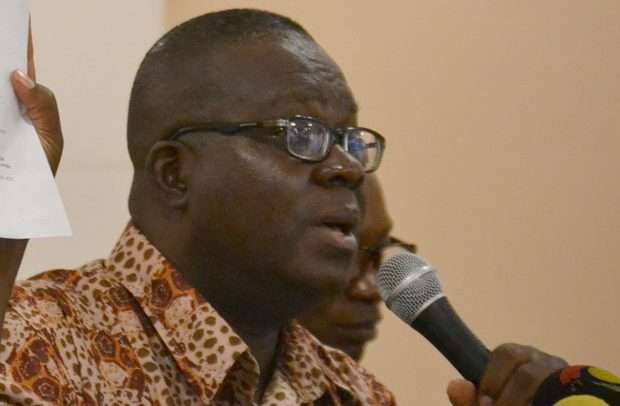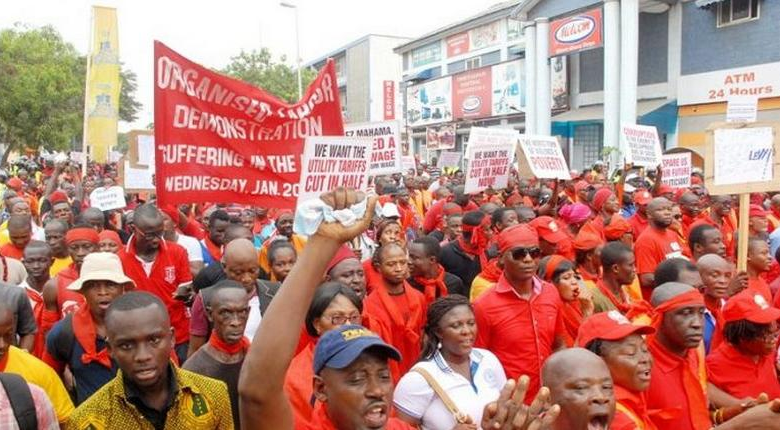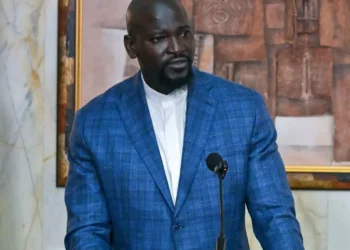The implications of Organized Labor holding the government accountable on various national issues are far-reaching and profound.
By serving as a watchdog and advocate for workers’ rights, the Labor plays a vital role in shaping the country’s socio-economic agenda and promoting good governance, thereby contributing to a more equitable and just society.
Furthermore, Organized Labor’s vigilance ensures improved governance by pushing for transparency and accountability in government decision-making processes.
As such, Labor prevents the concentration of power and promotes a more inclusive and participatory democracy by scrutinizing policy decisions and holding leaders accountable.
Labor’s advocacy for workers’ rights also protects the interests of the working class, securing fair wages, better working conditions, and social benefits.
This not only improves the livelihoods of workers but also contributes to economic growth and social stability.
More so, by influencing policy decisions, Organized Labor contributes to shaping the country’s socio-economic agenda, promoting equality, justice, and sustainable development.

Labor’s input ensures that policies serve the broader public interest, rather than just benefiting a privileged few.
Accordingly, Organized Labor has declared its intention to escalate its actions beyond a nationwide strike, vowing to hold the government accountable on various national issues, including the sale of SSNIT’s stake in hotels to public officials.
Eric Agbe-Carbonu, President of the Ghana National Association of Graduate Teachers (NAGRAT), lamented that Organized Labor’s previous silence has been wrongly perceived as complacency, rather than a strategic decision.
Agbe-Carbonu noted that if Organized Labor had previously remained silent, it wants to assure everyone now that moving forward, its voice will be heard on pertinent issues.
“And we want other people to come on board, we do not want the Ghana Bar Association to be docile and tell us that they don’t want to talk politics. They should come on board. We want the media to come on board. We want everybody to come on board because this is the only country that we have.”
Eric Agbe-Carbonu
Labor: A Check On Government Power
Moreover, Organized Labor serves as a vital check on government power, preventing abuses of authority and ensuring accountability to the people.
Thus, by speaking truth to power, Labor protects democratic institutions and the rule of law, preventing the erosion of civil liberties and democratic norms.
Organized Labor’s activism further inspires citizen participation and engagement in civic activities, fostering a more active and engaged citizenry.
By setting an example, Labor encourages other civil society organizations and individuals to hold leaders accountable, creating a culture of accountability and transparency.
Likewise, Labor’s advocacy can lead to improved public services, as their input can result in better funding and management of essential services like healthcare, education, and infrastructure.
This benefits not only workers but also the broader population, contributing to a more equitable and just society.
As such, Professor Ransford Gyampo commended Organized Labor for its commitment to the well-being of workers and the nation, saying that even though the youth may have failed, Labor has shown the way forward.

Gyampo emphasized that a united Labor movement, acting as it has done, would provide a strong enough counterbalance to force politicians to prioritize Ghana’s development and citizens’ well-being.
“Power blindfolded them into thinking they could use their muscle to force the agreement down the throat of Labor. This should tell them that Ghanaians aren’t angry enough. When they decide to act out of anger, nothing would stop them”.
“Politically this regime demonstrated much incompetence in handling the SSNIT matter. They could have made it look like they were the ones listening and asking BA to pull out rather than being forced to do the needful by Labor”.
Professor Ransford Gyampo
Thus, Organized Labor’s role in holding the government accountable is essential to promoting good governance, social justice, and democracy.
By advocating for workers’ rights, shaping policy decisions, and serving as a watchdog, Labor ensures that power is distributed more equitably and that the government serves the people’s interests.
READ MORE: Kagame Secures Overwhelming Victory in Rwandan Presidential Election



















